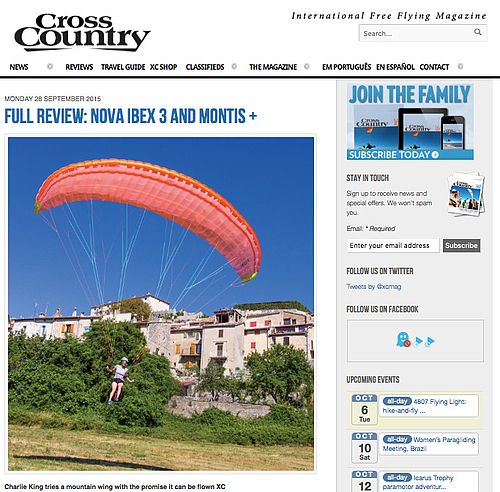Kto próbował owinąć kulę kartką papieru, na pewno zwrócił uwagę na to, że papier się marszczy. Podobnie jest z krawędzią natarcia paralotni, na której materiał musi dopasować się z jednej strony do krzywizny profilu, a z drugiej do efektu ballooningu. Podwójny 3D Shaping redukuje za pomocą dodatkowych szwów powstawanie zmarszczek i podnosi w ten sposób osiągi skrzydła.
SmartCells przeciwdziałają nierównomiernemu rozłożeniu siły wewnątrz czaszy, powstającej przez punkty podczepienia linek. W paralotniach z technologią SmartCells szerokość cel inteligentnie dostosowuje się do wytwarzanej siły. Skrzydła takie są spokojniejsze w powietrzu, bardziej kompaktowe i lepiej szybują.
Wszystkie paralotnie NOVA są bardzo poręczne. Skrzydła możemy składać komorami, ale nie jest to koniecznością. Dzięki naszemu wieloletniemu doświadczeniu w wykorzystaniu technologii z użyciem żyłek usztywniających wiemy, że sposób składania skrzydła ma znikomy wpływ na jego trwałość. Zgięte usztywnienia bardzo szybko wracają do swojego pierwotnego kształtu.
Koncepcja trzyrzędowej paralotni a także zredukowanej długości linek umożliwia konstruowanie skrzydeł o bardzo dobrych osiągach i wysokim bezpieczeństwie pasywnym. Taki schemat olinowania zapewnia paralotni dużą odporność na podwinięcia, jeśli jednak już dojdzie do deformacji, to z reguły na bardzo małej powierzchni. Dzięki temu poprawione zostało zachowanie skrzydła w ekstremalnych stanach lotu.
Wydłużenie nie jest jedynym, ale jednak bardzo znaczącym parametrem wpływającym na bezpieczeństwo pasywne. Większe wydłużenie zwiększa tendencje skrzydła do krawacenia, skraca z reguły drogi sterowania i czyni skrzydło bardziej wymagającym. Nova dysponuje narzędziami analitycznymi, które umożliwiają konstruowanie bardzo wydajnych skrzydeł z niskim lub umiarkowanym wydłużeniem.
Bardzo lekki a przy tym wytrzymały: skrzydła NOVA w kategorii wagowej light są lekkie jak piórko a mimo to wystarczająco mocne by sprostać wymagającym warunkom w górach. Profil wykonany jest z bardzo wytrzymałego materiału, który w przeciwieństwie do ultralekkiej tkaniny nie deformuje się. Dzięki temu gwarantujemy stałe właściwości lotne skrzydła.
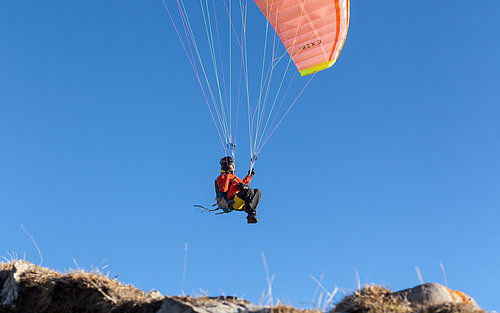

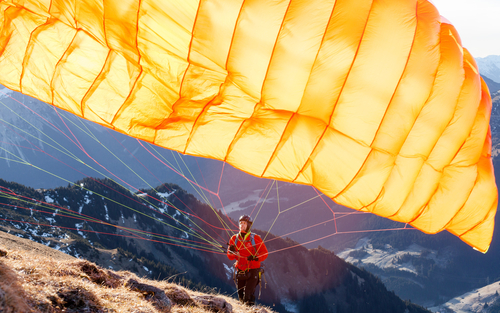




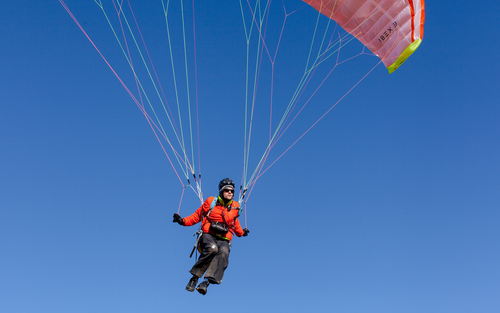

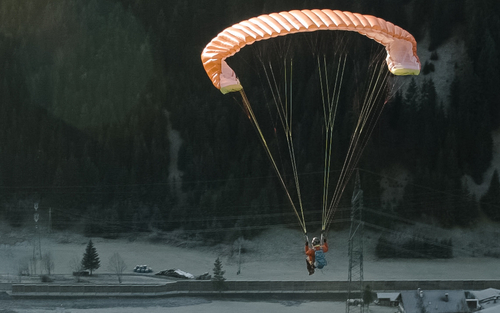


 Orange
Orange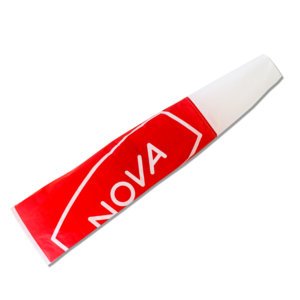 NOVA windsock.
NOVA windsock. Compression Bag.
Compression Bag.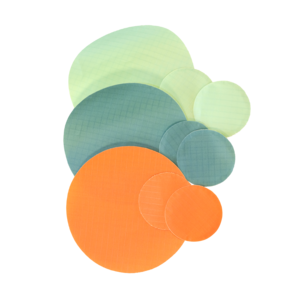 Repair kit.
Repair kit.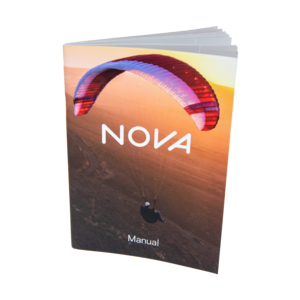 Manual.
Manual.